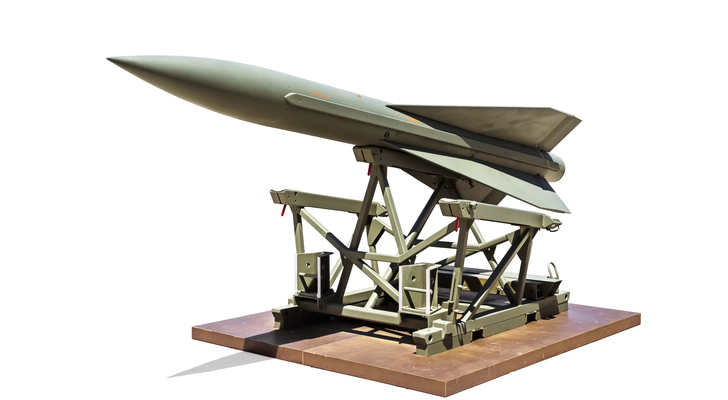A Complete Guide to: What Is Return on Investment?
Oct 03, 2022 By Susan Kelly
Introduction
Consider investing in exchange-traded funds (ETFs) focused on the aerospace and defence industries if you think these areas could be good bets for your portfolio. Getting things done with Vanguard online is the quickest, easiest, and cheapest option. We may be able to pass on more savings to you if our costs go down. It is important to note that the iShares U.S. Aerospace & Defense ETF is not available without a prospectus.
These vehicles provide a convenient and diversified route into these businesses without requiring you to perform extensive due diligence on your own. As a bonus, investing in exchange-traded funds (ETFs) can help you save money by lowering your overall brokerage fee and commission costs. Lastly, many ETFs are eligible for tax breaks. Exchange-traded funds (ETFs) are dedicated to the aerospace and defence industries holding shares of companies that produce and distribute aircraft and aircraft parts and components and equipment for the defence industry.
What is an ETF?
Investing in an ETF can acquire many stocks or bonds all at once. Purchases of ETF shares enable the funds to be invested consistent with the fund's stated investment objective. You should be aware that holding ETFs in a non-IRA brokerage account may have to pay taxes on the gains. You will be subject to capital gains tax regulations on any profits from selling an ETF, and similar rules apply to any dividends you receive. If you invest in an S&P 500 ETF, your money will be spread among the 500 companies that make up that index.

Advantages of ETFs
- Exchange-traded funds (ETFs) allow investors to gain cheap, diversified exposure to the stock and bond markets and other asset classes.
- By eliminating emotion from stock trading, ETFs make investing easier. They enable traders to replicate the market's strong long-term performance.
- Compared to mutual funds, exchange-traded funds (ETFs) are more liquid. Thanks to online brokers, investing in and trading ETFs is as easy as clicking a mouse.
- Investing in individual bonds can be extremely challenging, but a bond exchange-traded fund (ETF) can simplify your fixed-income holdings.
Disadvantages of ETFs
- The return potential of ETFs is lower than that of buying individual stocks because ETFs hold a wide range of companies.
- Despite their low prices, exchange-traded funds (ETFs) aren't always free. There will be no management fees if you buy a stock portfolio through individual purchases.
ITA — iShares U.S. Aerospace & Defense Exchange Traded Fund (DOW)
The underlying index for this ETF is the Dow Jones U.S. Select Aerospace & Defense Index. Stocks like Boeing (B.A.) and Lockheed Martin (LMT) are among its 35 holdings (LMT). Regarding metrics, it is involved in producing 35.50 percent of the controversial weapons and 24.32 percent of the nuclear weapons. Learn about ITA by reading the product fact sheet on the iShares website.
PPA — Invesco Aerospace & Defense ETF
The ETF's top holdings, HON, LMT, and Raytheon Corporation, follow the SPADE Defense Index (RTN). This portfolio comprises 89.15 percent Industrials, 5.93 percent Information Technology Companies, and 4.15 percent Materials. Invesco provides a PPA fact sheet for those interested in learning more.
XAR — SPDR S&P Aerospace & Defense ETF
Northrop Grumman, Textron Inc., Lockheed Martin, and L3Harris Technologies Inc. are just some of the 37 companies represented in this SPDR ETF that follows the S&P Aerospace & Defense Select Industry Index (SPSIAD). This portfolio is entirely dedicated to the aerospace and defence industries. The XAR fact sheet is available for perusal on the SSGA website.
Direxion Daily Aerospace & Defense Bull 3X Shares (Symbol: DFEN)
There was only five aerospace and defence sector ETFs as of May 2021, so investors should be able to easily compare them and pick the one that makes the most sense for their portfolio. Like any other type of investment, these ETF offerings carry the possibility of loss and do not guarantee a profit.

Conclusion
Investors who lack in-depth knowledge of a given market may want to diversify their holdings by quickly adding securities from that market, style, industry, or country to their portfolios. Shares of exchange-traded funds (ETFs) may make it simple for an investor to gain exposure to a particular market segment thanks to the wide range of public sector, style, industry, and country categories. There is now an exchange-traded fund (ETF) for practically every major asset class, commodity, and currency in the world.
ETFs have evolved considerably over the years, and the latest innovations in ETF construction often reflect a specific investment or trading approach. Exchange-traded funds (ETFs) allow investors to buy and sell exposure to stock market volatility or make ongoing investments in the world's highest-yielding currencies. In some cases, restrictions or taxes may make it impossible for an investor to diversify away from a high level of exposure to a single industry. One option is to short an exchange-traded fund (ETF) that tracks a specific industry or sector or to purchase an ETF that shorts an industry on its behalf.








